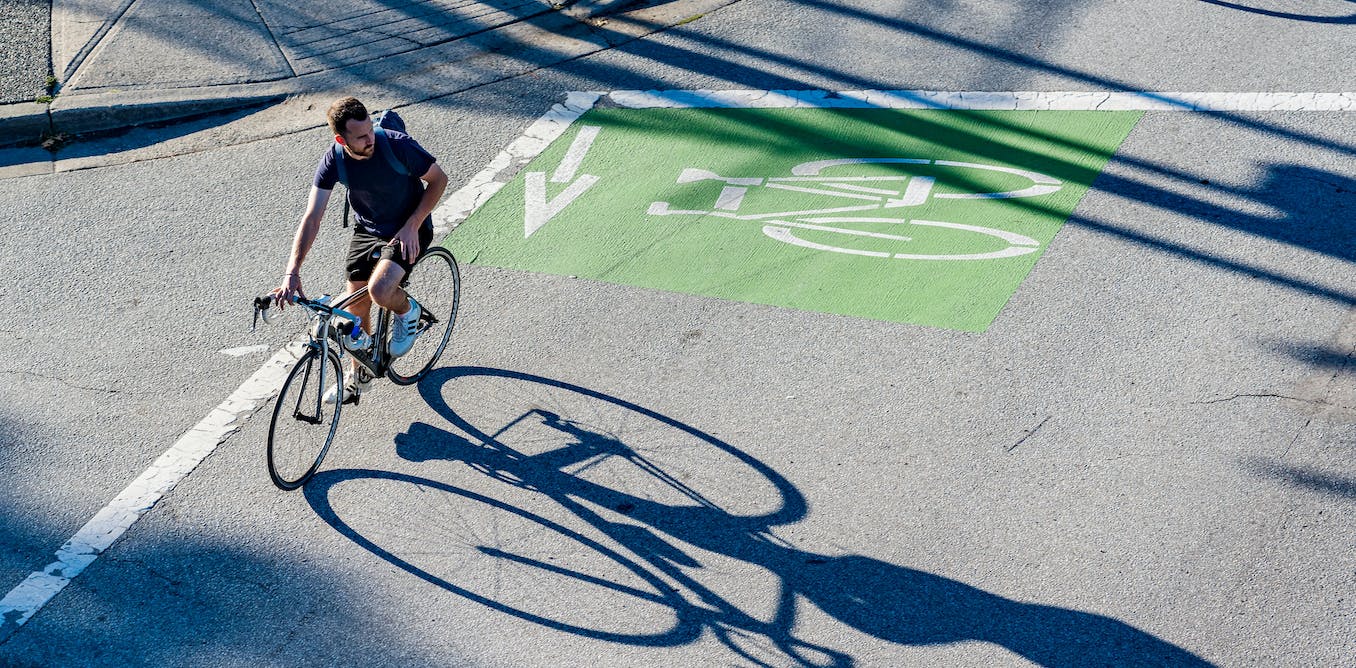Globally, only one in 50 new cars were fully electric in 2020, and one in 14 in the UK. Sounds impressive, but even if all new cars were electric now, it would still take 15-20 years to replace the world’s fossil fuel car fleet.
The emission savings from replacing all those internal combustion engines with zero-carbon alternatives will not feed in fast enough to make the necessary difference in the time we can spare: the next five years. Tackling the climate and air pollution crises requires curbing all motorised transport, particularly private cars, as quickly as possible. Focusing solely on electric vehicles is slowing down the race to zero emissions.



Ice, salt, snowbanks narrowing the road surface. I haven’t seen a bicycle in months and I understand why.
It’s definitely not as pleasant, and the required prep has led to a culture of not biking during winter conditions in many places.
Ice is often not a problem with studded tires - it can be, but it’s rarely been my primary concern when out and about. Loosely packed snow - the kind where you sink down a bit - has been far more problematic.
Salt is a double-edged sword in many ways. It will corrode your bike a lot faster, so being good about cleaning becomes more important in winter, and you might want to have a separate winter-bike for the purpose. Salt improves road conditions as far as bikes are concerned though, making it on balance a good thing for the winter biker.
Snow banks narrowing the road surface is also a bit problematic in some places, in particular where there is no bike infrastructure in place. Taking the lane can be necessary in some cases.